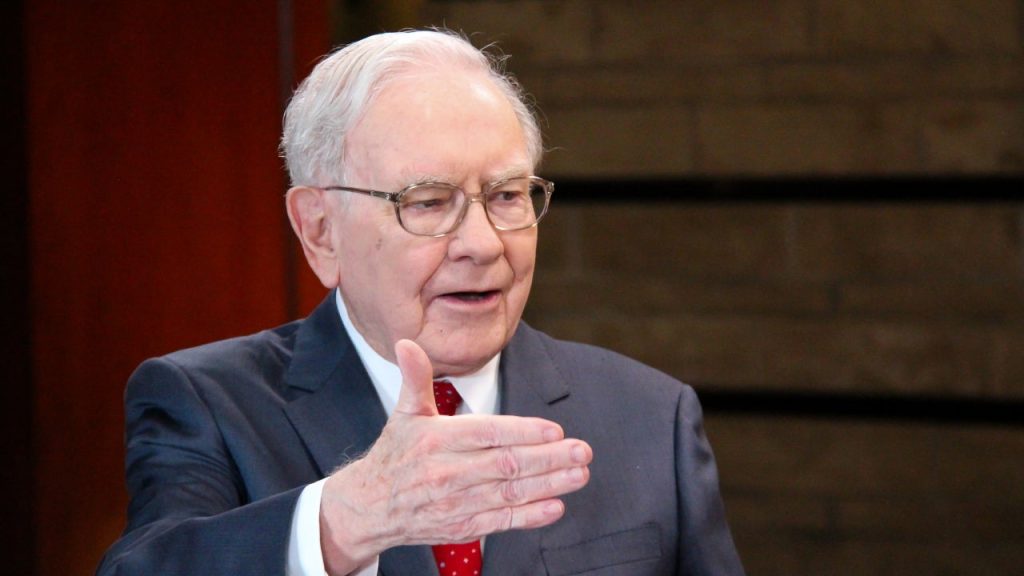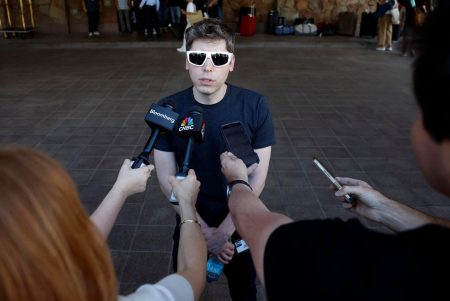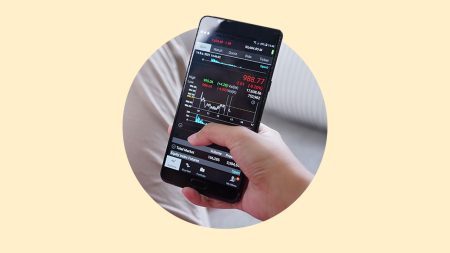Warren Buffett is one of the greatest investors of all time. Berkshire Hathaway, the company he’s managed since 1965, has returned 19.9 percent annually through the end of 2024 during Buffett’s leadership, nearly doubling the return of the S&P 500 on an annualized basis over that time period.
A $1,000 investment in the S&P 500 would be worth about $390,540 today, compared to about $55 million if you’d invested it in Berkshire.
Buffett is not what many people think of when it comes to Wall Street, however. He communicates complex financial topics in simple terms, lives in Omaha, Nebraska, and shuns the short-term nature of market traders. Instead, Buffett takes a long-term view, sometimes holding stocks for decades as their value compounds for shareholders.
Here are some of Buffett’s best stock investments of all time and some companies he’s held for at least a decade.
Berkshire Hathaway investing approach
One thing that makes Berkshire Hathaway’s investment approach unique is that Buffett can purchase both stocks and entire companies. He has often written that he views the two purchases the same, no matter if he’s buying 5 percent of a company or the entire thing.
Some of Berkshire’s longest and most successful investments have been when they’ve purchased an entire company, such as when it acquired See’s Candy in 1972 for $25 million. Buffett told shareholders in 2019 that See’s had produced “well over” $2 billion in pre-tax earnings for Berkshire since its purchase. See’s strong brand has allowed it to raise prices over time, helping it to limit the impact of inflation.
Another long-time holding was an investment in The Washington Post, which Buffett bought in 1973 and held for more than 40 years. The newspaper was sold to Amazon founder Jeff Bezos for $250 million in 2013, with remaining assets such as TV stations going to Graham Holdings, which Berkshire exited in 2014. The investment was a profitable one for Berkshire, but would have been even greater if it had been sold earlier. At the end of 2004, Berkshire’s stake was worth nearly $1.7 billion, or about 154 times its cost of $11 million at the time.
In recent years, Buffett has trimmed some long-time investments, selling shares in Apple (APPL), Bank of America (BAC) and Chevron (CVX).
Warren Buffett’s top stocks of all time and long-held positions
*Source: Berkshire Hathaway SEC filings. Market values as of Dec. 31, 2024.
1. Apple (AAPL)
Berkshire disclosed its position in Apple in early 2016, but it was later that year and in early 2017 when Buffett really loaded up on the stock, making it one of Berkshire’s largest investments ever. Buffett told shareholders in 2023 that Apple “just happens to be a better business than any we own.” Buffett sold some Apple shares from 2018-2020, but told shareholders later that it was a “dumb decision” to sell. Buffett told shareholders at the 2024 Berkshire meeting that he’d sold about 13 percent of the Apple position but that it was likely to be a top holding for years to come. Buffett ended up selling half Berkshire Hathaway’s stake in Apple by mid 2024, but recently joked that Apple CEO Tim Cook had made more money for Berkshire than he ever had.
- Length of holding: 9 years
- Cost: ~$10 billion
- Market value: $75.1 billion
2. American Express (AXP)
Berkshire’s investment in American Express was built primarily in the mid-1990s, but Buffett had owned the stock in the 1960s in his investment partnership following a scandal that briefly threatened the company’s solvency. Buffett told shareholders in his 2022 letter that dividends from American Express to Berkshire have grown from $41 million in 1995 to $302 million in 2022. The dividends reached about $409.3 million in 2024.
- Length of holding: 31 years
- Cost: $1.3 billion
- Market value: $45.0 billion
3. Coca-Cola (KO)
Berkshire began buying Coca-Cola’s stock in the fall of 1988, eventually building a $1.3 billion position. Just three years later the investment was worth $3.75 billion, more than all of Berkshire at the time of its investment. Buffett saw that Coke had an extremely strong brand with lots of room to grow profitably for many years. In 2024, Berkshire received dividends of $776 million from its Coke holdings and its stake was worth about $28.6 billion.
- Length of holding: 36 years
- Cost: $1.3 billion
- Market value: $24.9 billion
4. Bank of America (BAC)
Berkshire invested in Bank of America through preferred stock and warrants in 2011, which were exercised in 2017. Buffett has occasionally added to the position since then, including in the first quarter of 2023. Buffett has invested in many bank stocks over the years and has repeatedly praised Bank of America CEO Brian Moynihan. The holding has become one of the largest for Berkshire, though it sold 15 percent of its stake in 2024.
- Length of holding: 14 years
- Cost: ~ $15.2 billion
- Market value: $29.9 billion
5. Moody’s (MCO)
In early 2000, Berkshire disclosed an investment in Dun & Bradstreet, which spun off Moody’s later that year. Moody’s credit rating business is extremely profitable and has continued to grow despite periodic calls for reform to the ratings industry. Buffett told the Financial Crisis Inquiry Commission in 2010 that he liked Moody’s because it had enormous pricing power and “almost infinite” returns on tangible assets.
- Length of holding: 25 years
- Cost: $248 million
- Market value: $11.7 billion
6. Chevron (CVX)
Berkshire has been buying and selling Chevron stock since 2020, starting with a position of 48.5 million shares by the end of 2020, peaking at 165.4 million shares in 2022 and selling down to 118.6 million in 2024. A major oil and gas producer, Chevron is also one of the highest-yielding dividend stocks in the Dow Jones Industrial Average. In 2024, Chevron paid $6.52 per share in dividends.
- Length of holding: 5 years
- Cost: ~ $15.4 billion
- Market value: $17.2 billion
Editorial Disclaimer: All investors are advised to conduct their own independent research into investment strategies before making an investment decision. In addition, investors are advised that past investment product performance is no guarantee of future price appreciation.
Read the full article here









